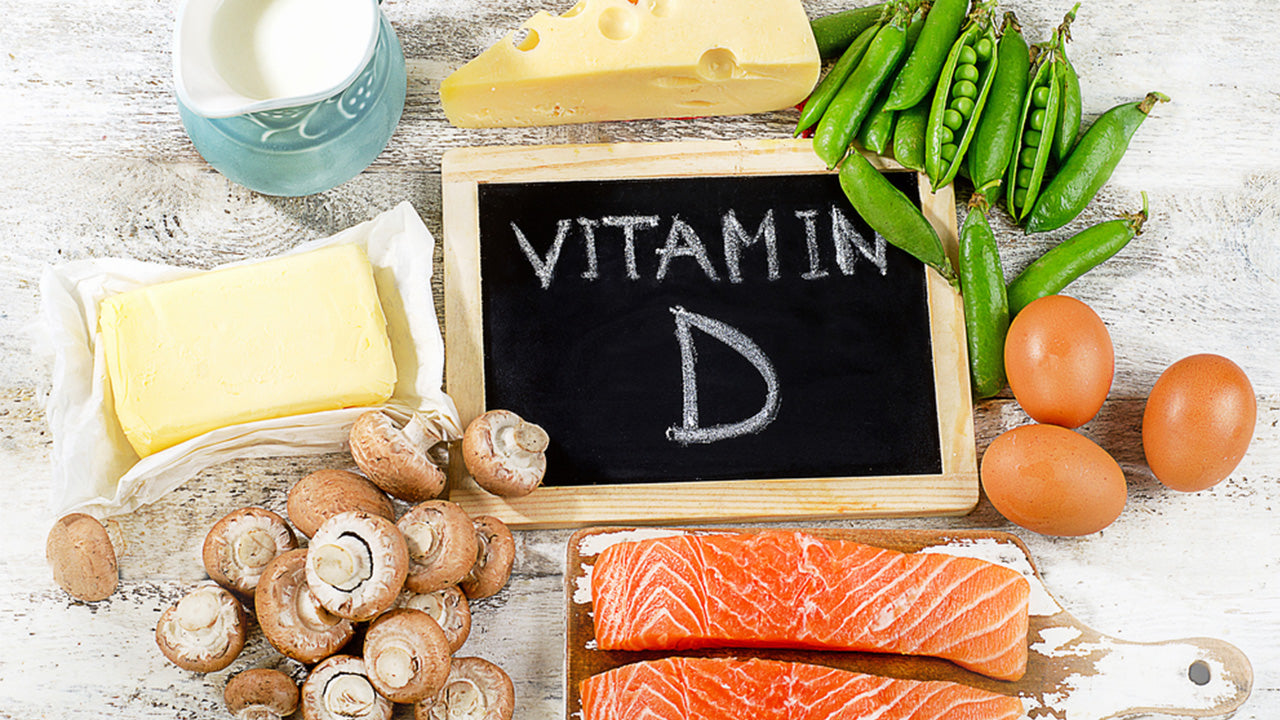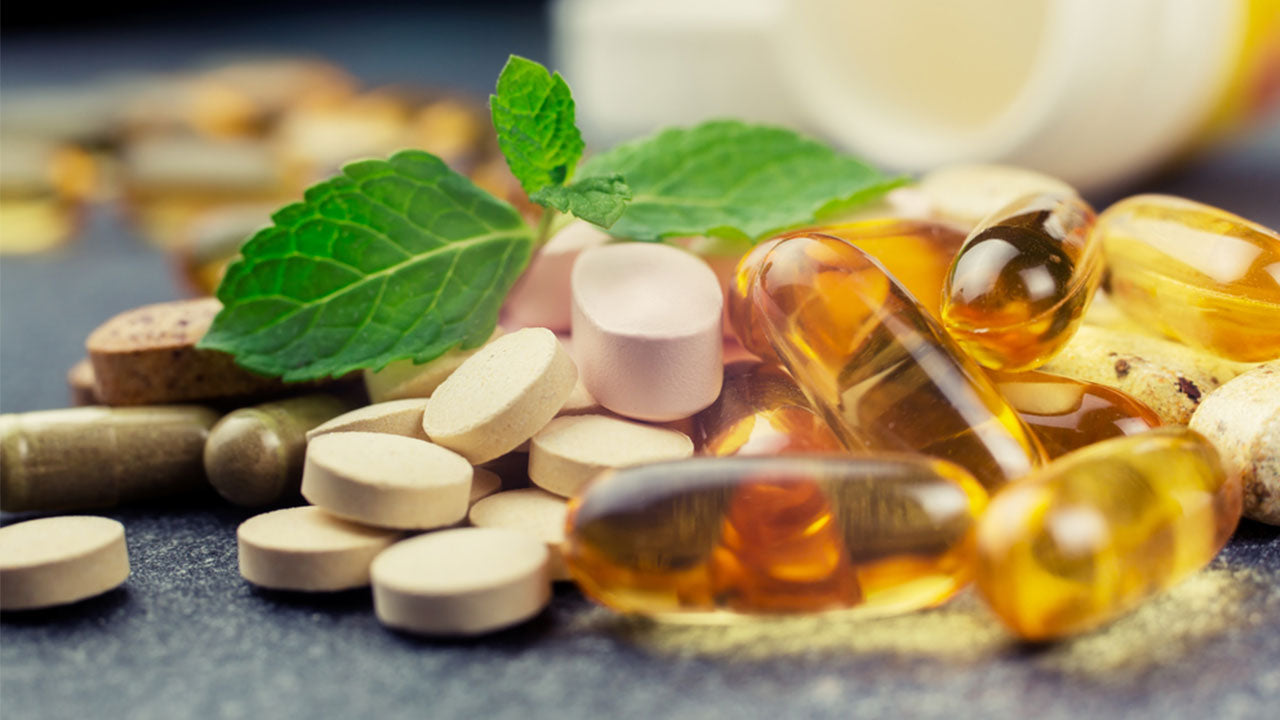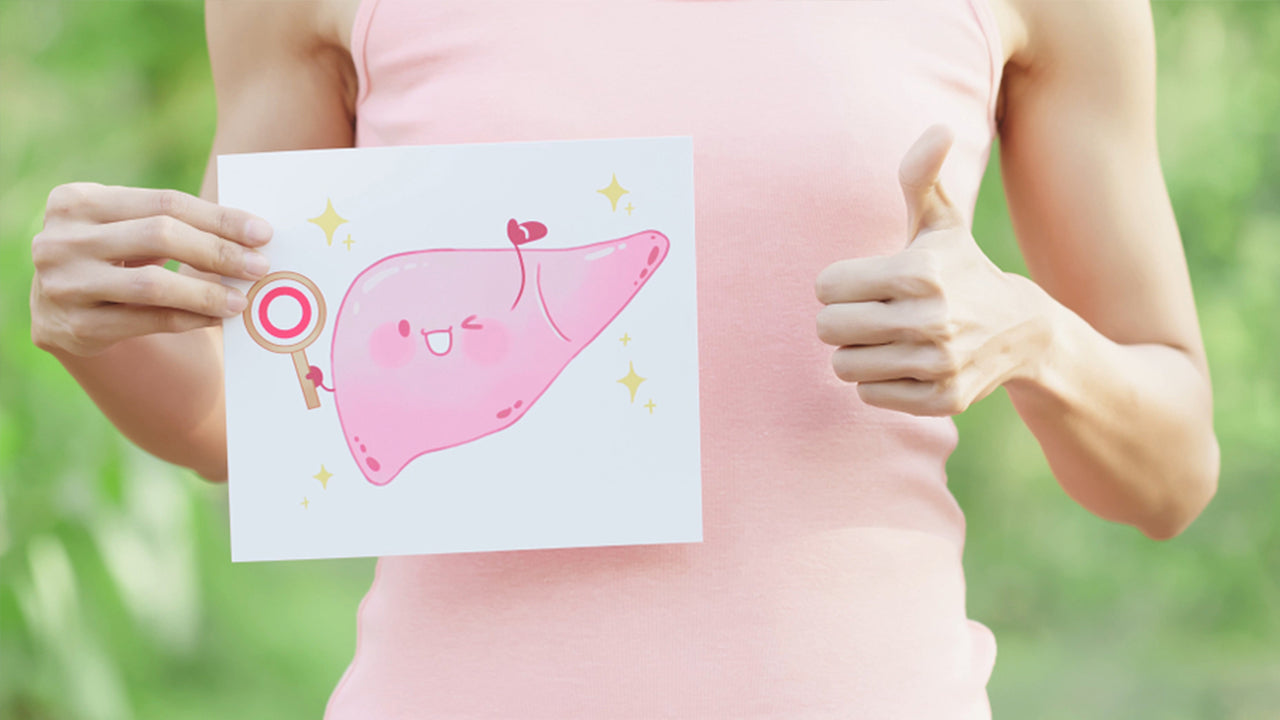10 Vitamin D Rich Foods to Fight Winter Blues and Help You Stay Healthy
 By: by Amino Science
By: by Amino Science

As the days grow colder and shorter, many people also come down with a bad case of winter blues, a bout of the flu, or in especially unlucky instances, both. These 10 vitamin D rich foods can help you combat depression, keep you from catching infections like the flu, and even ward off holiday weight gain.
What Is Vitamin D?
Sometimes called the “sunshine vitamin,” since your skin produces it in response to sunlight, vitamin D is fat-soluble and plays several important roles in the human body, including regulating immune system function. Adequate levels of vitamin D are also vital for the health of your teeth and bones. If you don’t get enough of it, you’re at increased risk of developing osteomalacia (soft bones) and osteoporosis (fragile bones).
Hopefully you already know how important it is to get enough vitamin D. According to data gathered by the Centers for Disease Control and Prevention (CDC), optimal vitamin D levels have dropped to an average of 30% for white Americans and 5% percent for African Americans—darker skin pigmentation increases your risk of deficiency.
As you may have intuited from its nickname, sunlight exposure—or rather, lack thereof—is another factor that increases the likelihood you’ll develop a vitamin D deficiency. The low angle of the sun in the sky during the winter months makes it difficult for your skin to generate much vitamin D, even if you’re spending time outside. This makes it especially important to supplement your vitamin D intake.
3 Key Vitamin D Benefits for the Holiday Season
It’s somewhat ironic that our bodies become less able to produce vitamin D during the winter, since we’re even more in need of its support during those months in order to keep depression at bay, reduce our risk of catching a nasty infection, and help us avoid the weight gain that often accompanies holiday celebrations.
Benefit #1: Wards off Depression
The link between vitamin D and mood is a fascinating area of inquiry. According to a study published in the Journal of Internal Medicine in 2008, increasing the levels of vitamin D in your blood can help treat symptoms of depression. Participants given high doses of vitamin D, which subsequently increased concentrations in their bloodstream, showed clear and significant improvements to their Beck Depression Inventory (BDI) scores, a tool researchers use to measure the severity of depression symptoms.
A separate study conducted by researchers from the Department of Rheumatology at Musgrave Park Hospital in Belfast also found an association between low vitamin D and increased anxiety and depression for individuals with fibromyalgia. It’s not yet clear whether vitamin D deficiency is a factor in the development of fibromyalgia or whether fibromyalgia leads to a vitamin D deficiency, but either way, adding supplemental vitamin D to your diet will likely improve your health.
Benefit #2: Reduces Your Risk of Developing the Flu
As mentioned earlier, vitamin D supports the functioning of your immune system. A randomized trial published in the American Journal of Clinical Nutrition in 2010 looked at whether an increased intake of vitamin D can lower your risk of getting physician-diagnosed seasonal influenza. The researchers found that a dose of 1,200 IU of vitamin D daily led to a prominent reduction in the number of individuals who developed the flu compared to a control group.
Benefit #3: Supports Weight-Loss Efforts
For some, weight gain can be an unwanted accompaniment to of all the rich, delicious foods often central to holiday festivities. A randomized, double-blind, placebo-controlled study published in the British Journal of Nutrition found that an increased intake of vitamin D can lead to significant decreases in body weight and fat mass, especially for individuals with very low calcium.
What Are the Top Vitamin D Rich Foods?
While there’s no getting around the fact that the best source of vitamin D is natural sunlight, that’s not always sufficient to meet your body’s needs. That’s why it’s important to ensure you include foods rich in vitamin D in your diet.
Not sure what the top vitamin D rich foods are? Luckily for you, we compiled a vitamin D rich foods list to help you optimize your levels of this vital nutrient. Since natural food sources of vitamin D are somewhat rare, and the top natural sources tend to be animal-derived, we also included some foods frequently fortified with vitamin D so that vegans and vegetarians have a more diverse set of options.

5 Top Vitamin D Rich Seafoods
Wild fatty fish are the absolute richest natural food sources of vitamin D out there. It’s crucial to choose ocean-caught fish, however, since farmed fish don’t have access to the same wealth of food sources, leading to decreased nutrient contents. Here are five of the top seafood sources of vitamin D.
1. Salmon
This popular fish is not only a wonderful way to add healthy fats to your diet, but it is also the most abundant natural source of vitamin D. According to an appendix attached to the eighth edition of the Dietary Guidelines for Americans, 3 ounces of salmon contain an average of 11.1 micrograms.
Studies indicate that wild salmon provides far more vitamin D than farmed salmon. Wild salmon offers up around 988 IU of vitamin D, which accounts for 165% of your recommended daily intake (RDI). Farmed salmon, however, gets you just 25% of that amount—250 IU, or 42% of your RDI.
Note: The RDI for vitamin D (400 to 800 IU) is notoriously low, and many studies suggest a more optimum intake up to 5000 IU daily. Reaching upwards of 1000 IU daily from vitamin D rich foods alone is a challenge. Which is why it might be a good idea to discuss taking a vitamin D supplement with your doctor.
2. Cod Liver Oil
If you’re not a fan of fish but want to access the vast stores of vitamin D they contain, you should try cod liver oil. This old-fashioned remedy is a phenomenal source of vitamin D. It provides approximately 450 IU per teaspoon, meaning you get 75% of your RDI in that one small dose. No wonder it’s historically been used to prevent rickets, a childhood disease caused by severe vitamin D deficiency.
Cod liver oil also delivers a whopping dose of omega-3 fatty acids as well as vitamin A, which can be toxic in high amounts, so be sure not to take too much (a teaspoon serving contains 90% of your RDI for vitamin A).
3. Oysters
These delicious salt-water delicacies are low in calories and high in vitamin D. A 3.5-ounce serving of wild oysters provides 320 IU of vitamin D, more than half your RDI. Plus, you get more vitamin B12, copper, and zinc than most multivitamins on the market.
4. Canned Tuna
This affordable, portable way to enjoy tuna also packs in up to 236 IU of vitamin D in a 3.5 ounce serving—close to half your RDI! Canned tuna is also a valuable source of niacin and vitamin K. One caution: it can contain problematic levels of methylmercury, a toxin common in numerous species of fish that can cause health problems if builds up in your system. Testing reveals that light tuna contains lower levels of methylmercury than white tuna does, and experts say it’s safe to consume up to 6 ounces of that variety in a week.
5. Herring
These tiny silver fish, which are quite similar to sardines, can be enjoyed raw, canned, smoked, or pickled. Vitamin D levels vary depending on the method of preparation, but are consistently high enough to rank herring as one of the best food sources of D.
5 Top Vitamin D Rich Vegetarian Foods
Adding vitamin D rich foods to your diet can be especially challenging for vegetarians and vegans. But it’s not impossible. These five foods will help you keep your levels high through the dark winter months.
1. Egg Yolks
If you don’t eat meat or seafood, but do eat eggs, you can still get the more bioavailable form of vitamin D. Pasture-raised chickens lay eggs rich in vitamin D3. Well, eggs with yolks rich in vitamin D3—the whites may be the main source of protein, but the fat, vitamins, and minerals are all concentrated in the golden center. The yolks of eggs laid by factory-farmed chickens, who never see sunlight, contain mediocre vitamin D levels, but eggs from chickens allowed to roam in the fresh contain an average of 14.3 micrograms of vitamin D.
2. Mushrooms
These are the only natural plant source of vitamin D. Mushrooms, like humans, also synthesize vitamin D when exposed to sunlight. They produce vitamin D2 however, not vitamin D3, the form generated by humans and other animals. As is true for seafood, wild mushrooms trounce conventionally grown ones when it comes to vitamin D concentrations. Some varieties of wild mushrooms yield up to 2,300 IU per 3.5-ounce serving, while the same serving size of commercially-grown mushrooms tends to hover around 130-450 IU.
3. Yogurt
Milk, and the products made from it, do contain some vitamin D. Yogurt typically provides between 2 and 3 micrograms per 8 ounces, or around a quarter of your RDI. Plus, yogurt with live active cultures is a wonderful probiotic food that encourages the growth of beneficial bacteria in your gut.
4. Cereals and Oatmeal
Certain kinds of cereal and oatmeal are fortified with vitamin D, offering another option for those who adhere to a plant-based diet. Though they contain less vitamin D than many natural sources, they can be an important option for those with dietary restrictions. A 1/2-cup serving yields between 55 and 154 IU, which can total up to 26% of your RDI.
5. Soy Milk
Vegans, who eschew all animal flesh (including fish and poultry) as well as all products sourced from animals (including eggs and dairy), are especially at risk of getting inadequate levels of vitamin D from the foods they eat. Because of this, many manufacturers of plant-based milk substitutes fortify them with vitamin D, as well as other vitamins and minerals often found in animal products. A cup of fortified soy milk typically contains between 99 and 199 IU of vitamin D—about 20% of your RDI.
Don't Stop with D!
Strengthen immunity, combat inflammation, and bolster muscle and heart health by taking a daily essential amino acid supplement.
Essential amino acids are the building blocks of protein, and they help us fight off infection and viruses and recover from illnesses that strike in any season. Learn how Life, Amino Co's Active Aging supplement, can help you stay healthy. And check out our other popular supplements that keep your brain and body strong against any threat, be it colds, flu, or weight gain!

Up to 25% off Amino
Shop NowTAGS: food
Join the Community
Comments (0)
Most Craveable Recipes




 833-264-6620
833-264-6620



















